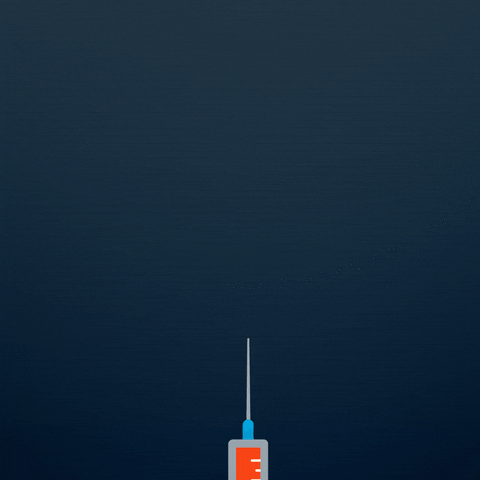
Published on Sep 11, 2023
Last modified on Apr 08, 2025
The Science Behind Vaccination for Adults & Why We Only Need Some Shots Annually
5 min read
Since the onset of COVID-19 (and arguably before), the vaccine conversation has been fraught, to say the least. Between recommendations for annual vaccines, guidance on one-time vaccines, and all of the misinformation on vaccine safety, it can feel easy to get overwhelmed and check out. We get it.
To make things easier, we’re addressing some of the most frequently asked questions about vaccines, and outlining adult vaccine recommendations per the Centers for Disease Control and Prevention (cdc.gov).
As always, this is NOT meant to substitute for medical advice. Also, all the information below is accurate as of the date of modification (November 5, 2024), but vaccine information and recommendations evolve often. All of this is to say that healthcare decisions should be made together with your primary care provider (who should also have access to your past vaccine records).
Annual vaccines
Current annual vaccine recommendations
Flu vaccine (influenza)
The CDC recommends that everyone six months of age and older receive a flu shot every year to reduce our chances of getting and spreading the flu. In addition to requiring potential doctor visits, hospitalizations, and missed work/school, the virus can be fatal and kills 36,000 people every year in the U.S.
COVID-19 vaccine
For COVID-19, the CDC recommendation is that everyone aged six and older receive an updated Pfizer-BioNTech or Moderna COVID-19 vaccine, regardless of whether an original dose was received.
If you’re 65 or older, or immunocompromised, you may receive one additional dose 6+ months after receiving your first updated vaccine.
Why do I only need some vaccines every year?
As convenient as a once-and-done flu shot would be, it doesn’t provide an immune response that can keep up with the ever-changing structure of COVID-19 and influenza. They are among the most rapidly mutating viruses in existence and are constantly evolving to evade human immunity. As of January 2024, there are over 26 known variants of COVID-19, which explains why previous infection by one strain doesn’t mean we can’t be infected again.
In the case of influenza, each year scientists assess which circulating flu strains are resulting in the most infection and symptoms — and adjust the vaccine formula to include those more dominant strains. Throughout the course of a flu season, the CDC will compare samples of circulating flu strains against those used in the vaccine to evaluate the effectiveness of the “match,” which informs the process for future years and allows us to improve vaccine technology.
Will the flu shot make me sick?
The flu vaccine doesn’t contain a live virus, so it can’t give us the flu. The point of the vaccine is to generate immunity, and some of us may experience mild symptoms resulting from our body’s immune response — such as low-grade fever or chills — that typically resolve within 24-48 hours.
How come I still get sick even though I get the flu shot/COVID-19 booster?
As we discussed earlier, scientists hone the flu vaccine annually according to the strains they are seeing in highest circulation. That being said, the process isn’t foolproof, and it is possible that a vaccine developed one year might not be an exact match for the most virulent strains. Regardless, the vaccine still provides critical protection — even if we contract illness — and is associated with a lower risk of ICU admissions compared to those who don’t receive the vaccine.
Of course, our individual immune health also has a large influence on our response to vaccines, and older people or those with autoimmune conditions may not be as protected.
RELATED: Covid & Menopause: What’s The Connection?
Other important vaccines
Tdap vaccine or Td vaccine
Tdap vaccines cover tetanus, diphtheria, and whooping cough (pertussis) while Td vaccines cover just tetanus and diphtheria. The CDC recommends these vaccines for all adults who have never received a vaccine as a child (regardless of if/when you last got Td), with follow-up shots every 10 years.
It is also recommended that pregnant women receive the Td vaccine during the third trimester of pregnancy to protect their baby from whooping cough during the first few months of life, before the child receives their vaccines.
The Food and Drug Administration (FDA) has licensed 12 “combination vaccines” to protect against diphtheria and tetanus, nine of which also help protect against whooping cough.
Hepatitis B vaccine
Hepatitis B is caused by a virus (hepatitis B, or HBV) that targets the liver. In addition to infants and children/adolescents younger than 19 who have not been vaccinated, the CDC recommends the hepatitis B vaccine (HepB) for the follow populations, provided they have never been vaccinated and/or have low levels of antibodies:
- Adults between the ages of 19-59
- Adults ages 60 and older who are at high risk for a hepatitis B infection (although those in this age group without known risk factors may still receive the vaccine)
MMR vaccine
Adults who do not have evidence of immunity from childhood MMR (measles, mumps, rubella) vaccination should receive the vaccine.
Read more from the CDC about the MMR vaccine.
Chickenpox vaccine
Caused by the varicella-zoster virus (or VZV for short), chickenpox is highly contagious and manifests as a rash on the chest, back, and face…although it usually spreads over most of the body.
An effective vaccine became available in the United States in 1995, and the CDC now recommends that adults who have never had chickenpox and were never vaccinated receive the vaccine. Someone who had a chickenpox infection in childhood does not need vaccination as an adult.
HPV vaccine
HPV stands for human papillomavirus, a common virus transmitted through sex that can cause genital warts and cervical cancer.
The HPV vaccine is usually administered around ages 11-12 in two doses. And while the vaccine is not generally recommended for adults older than 26 (since most people in this age range have already been exposed to HPV), if you’re between 27- 45, it’s worth a discussion with your provider about your individual risk for HPV infection and potential benefits of vaccination.
Read more from the CDC about the HPV vaccine.
RELATED: Cervical Cancer & Menopause: Screenings, Symptoms & More
Shingles vaccine (zoster)
The CDC recommends that once adults hit age 50, they receive the shingles vaccine, Shingrix, even if you’ve had shingles in the past or have received the varicella/chickenpox vaccine (adults 70+ may receive 1-2 doses). If you were previously vaccinated with Zostavax, which was taken off the market in 2020, it is still recommended you receive a Shingrix shot. There’s no maximum age for receiving the vaccine, which provides strong protection against both shingles and PHN (postherpetic neuralgia), a burning pain in the nerves and skin that can last after the blisters resolve.
If you’re under 50, you may still be eligible for the shingles vaccine if you’re immunocompromised (e.g., HIV-positive, on chemotherapy/radiation, etc).
RSV (respiratory syncytial virus)
If you’re 60 or older, it’s worth discussing the RSV (respiratory syncytial virus) vaccine with your healthcare provider. RSV is a common respiratory virus that typically causes mild cold-like symptoms. Infants and older adults, however, are susceptible to more severe cases of the virus.
The CDC recommends what’s called “shared clinical decision-making” (or SCDM) for this vaccine, which means healthcare providers should have a conversation with older adult patients to determine if RSV vaccination will be beneficial based on age, health conditions, and risk factors.
Pneumococcal vaccine
The CDC advises adults who have never received a pneumococcal conjugate vaccine to receive one if they are older than 65 OR between the ages of 19 and 64 with certain medical conditions or risk factors for pneumococcal disease, including:
- Chronic respiratory or heart conditions (e.g., heart failure)
- Chronic neurological conditions (e.g., Parkinson’s)
- Chronic kidney disease
- Diabetes
- Immunosuppression due to disease or treatment
- The conjugate vaccines include PCV13, PCV15, or PCV20.
Be sure to talk with your healthcare provider about which vaccine is best for you: conjugate (PCV13, PCV15, PCV20) or polysaccharide (PPSV23).
Wondering about the meningococcal vaccine for meningitis? It’s recommended that all 11-12 year olds receive the shot, followed by a booster at age 16 (although teens and young adults aged 16-23 may also receive the MenB vaccine). The CDC only recommends meningococcal vaccination for adults who are at increased risk for meningococcal disease.
Questions about immunization practices or vaccine-preventable diseases? The best place to go is your primary care provider!


